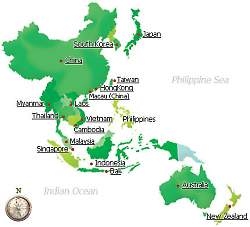Asia – Pacific and the Americas most ‘open’ regions in terms of visas

Madrid: New UNWTO research on Visa facilitation shows that Asia and the Pacific and the Americas are the most ‘open’ regions in terms of tourist Visa requirements. Data also shows that there has been significant progress on Visa facilitation globally in recent years, particularly with the implementation of Visa on arrival policies.
Based on a global evaluation of Visa requirements, including the implementation of policies that allow for Visa on arrival and eVisas, UNWTO findings show that in 2012 Asia and the Americas were the most ‘open’ regions for the entry of tourists. An average 20% of the world’s population were not required a Visa to visit an Asian destination, while 19% could obtain a Visa on arrival and 7% an eVisa – 31%, 8% and 1% respectively in the case of the Americas. European destinations were the ‘least open’ when comparing the three components of a Visa policy (no Visa; Visa on arrival and eVisas). Although 21% of the world population was not required a Visa to enter Europe for tourism, only 6% were able to apply for a Visa on arrival and no eVisa system was in place.
“An overall restrictive Visa policy means lost opportunities for economic growth and jobs, which tourism could bring to destinations. Travellers regard Visas as a formality which entails a cost. This can be a deterrent to travel if costs – whether monetary or indirect – including distance, wait times and service, exceed a certain threshold” said UNWTO Secretary-General, Taleb Rifai.
On a global level, in 2012, only 18% of the world’s population were not required a Visa at all when travelling for tourism. Destinations around the world requested on average from 63% of the world’s population that they obtain a traditional Visa before initiating their international journey. Another 16% was be able to apply for a Visa on arrival, while only 2% of the population was allowed to apply for an eVisa.
This new UNWTO research also shows considerable progress towards Visa facilitation over recent years: the requirement of a traditional tourism Visa went from 77% to 63% of the world’s population between 2008 and 2012, with significant changes over the last two years.
It was also noted that destinations tend to thoroughly review and introduce changes when reviewing their Visa policies. Since 2010, 43 destinations clearly facilitated the Visa process for citizens of at least 20 countries by changing their Visa policies from ‘Visa required’ to either ‘no Visa required’, ‘Visa on arrival’ or eVisa’, directly impacting on 5,080 destination-source market relations.
Improving Visa processes could generate an extra US$ 206 billion in tourism receipts and create as many as 5.1 million additional jobs by 2015 in the G20 economies alone, according to the joint research by UNWTO and the World Travel and Tourism Council (WTTC). As a result of this work, the G20 Leaders at their last Summit (June 2012, Los Cabos, Mexico) recognized tourism as “a vehicle for job creation, economic growth and development” and committed to “work towards developing travel facilitation initiatives in support of job creation, quality work, poverty reduction and global growth.” – UNWTO
















